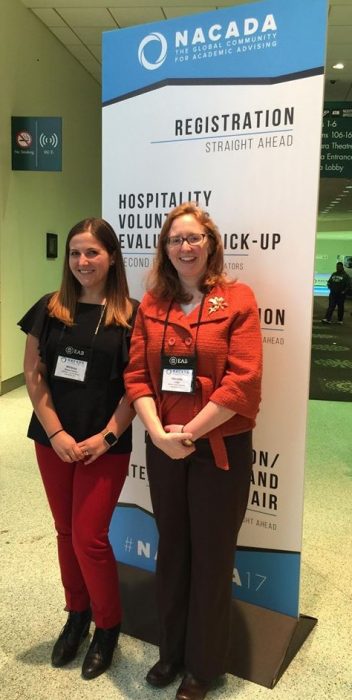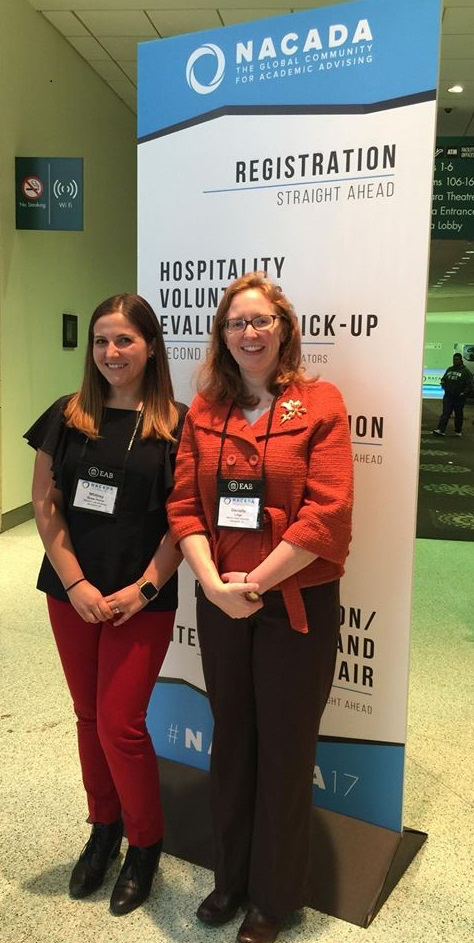Written by Emily Aderhold
To better meet English BSEd student advising needs, Dr. Danielle Lillge and former graduate assistant, Taylor Shaw-Hamp, along with program colleagues have developed what they refer to as Hybrid Advising. This advising model melds traditional one-on-one with group advising.

Advising and teaching are intertwined
The benefits of this model are many. This model echoes the department’s belief that advising and teaching are intertwined and that students and teachers best obtain knowledge when working together. Hybrid advising sessions meet the needs of students at various stages of their education and allow students to obtain accurate and current information about state standards for certification.
Students and faculty also find that Hybrid Advising builds peer-to-peer relationships with those at similar stages of teacher preparation: freshman, transfer students with an A.A.T., mid-level, and students preparing for their final student teaching semester.
Through Hybrid Advising, faculty can work systematically to share key ideas and information. These sessions also offer a chance for peers to support each other as they develop as professionals.
Based on research presented at conference
In October 2017, Dr. Danielle Lillge and Taylor Shaw-Hamp introduced their research and development of the Hybrid Advising system at The Global Community for Academic Advising (NACADA) conference. Their session, “Hybrid Advising: Moving Students Effectively Toward Degree Completion,” was sponsored by the Advising Education Majors Commission and was one of three such honored sessions.
Ms. Shaw-Hamp, a 2017 graduate of the department’s writing master’s program in rhetoric and composition, received the Missouri State University 2017 Excellence in Advising Graduate Student Contribution award for her dedication to the development of the Hybrid Advising model.

